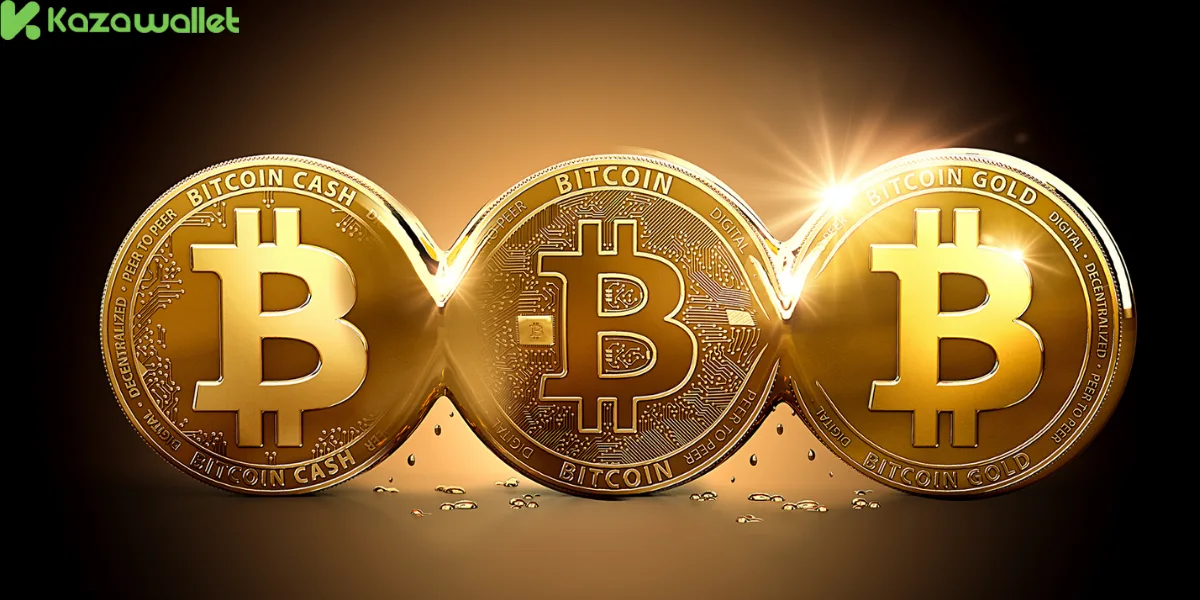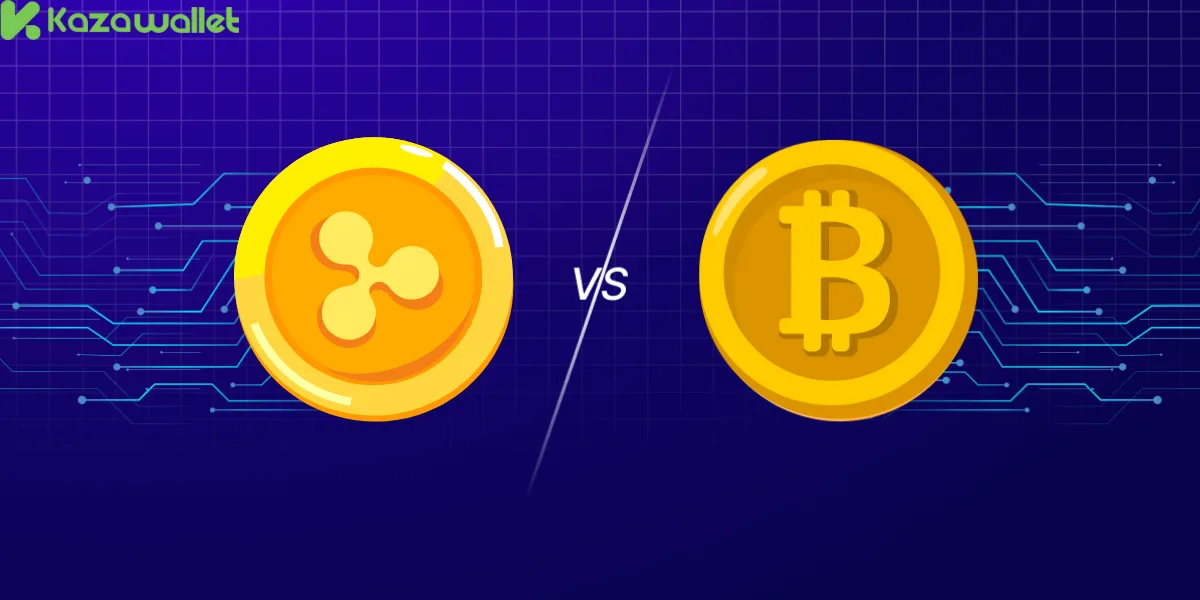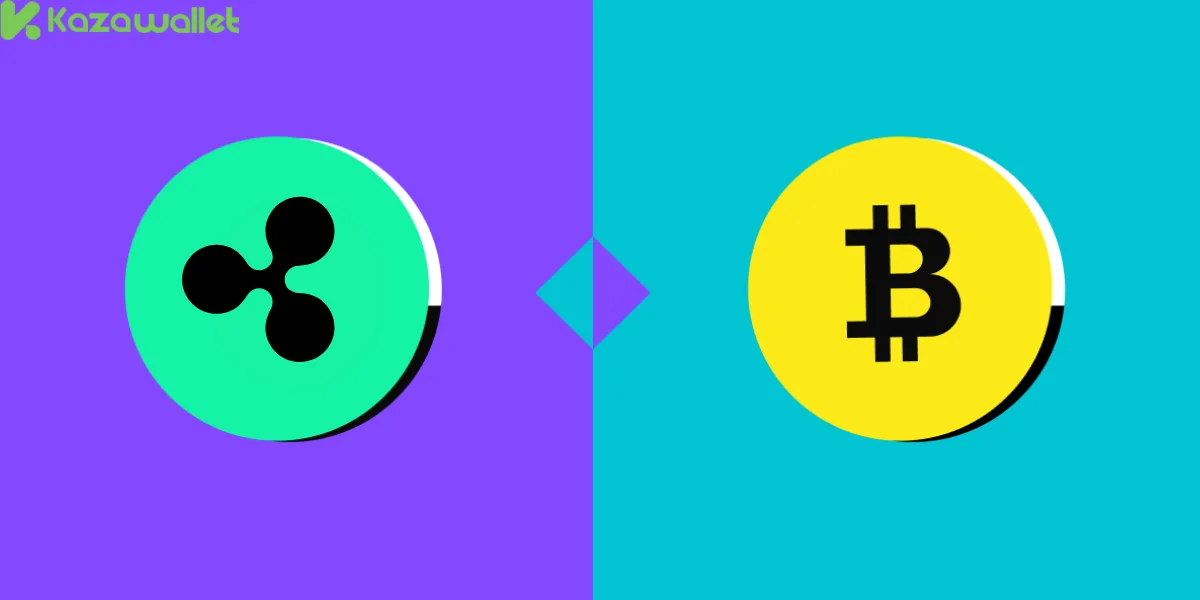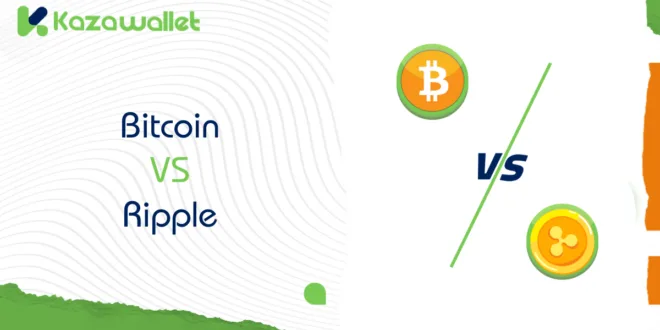Fintech has changed the face of the financial industry with the arrival of cryptocurrencies as promising alternatives to the traditional financial systems.
Have you wondered how Bitcoin is different from Ripple? Well, today we will make it simple for you to discover what is bitcoin vs ripple and the differences between bitcoin and ripple. We will discuss the features of Bitcoin as well as Ripple, their pros and cons, and present the main difference in simple language in a non-technical manner.
What is Bitcoin?

Bitcoin is an electronic currency which is bought, sold, and transferred among individuals with no financial intermediary in the shape of banks.
Unlike other currencies that are backed by the faith of institutions or governments, Bitcoin is supported by a secure, math-based mechanism in the form of blockchain technology. This technology forms the backbone of Bitcoin, offering a secure mechanism for the recordkeeping of transactions as well as safeguarding them from tampering.
The Bitcoin network is secured through a process known as mining, whereby participants in the network, or miners, use powerful computers to solve complex mathematical problems.
Once the equations are solved, the transactions are confirmed and added to the blockchain, which is a collective record of all the Bitcoin transactions. The collective record is completely transparent in the sense that any information regarding the transactions can be viewed by anyone, but it is highly secure and cannot be easily altered.
What is Ripple?

Ripple, or XRP, is a cryptocurrency developed by Ripple Labs in 2012. The currency primarily exists for use in a payment network known as RippleNet, which is meant to facilitate payments between banks and institutions worldwide.
What separates Ripple from other traditional cryptocurrencies such as Bitcoin and Ethereum is the fact that it does not use the conventional blockchain technology but instead utilizes a different technology known as Distributed Ledger Technology (DLT), along with a unique mechanism for verification and record-keeping of transactions.
XRP offers extremely fast transaction times, with the transaction itself only lasting between 3 to 5 seconds, much faster than the traditional financial systems or indeed other altcoins.
The cost of the transaction in the Ripple network is extremely low compared to conventional banking systems, which renders it a highly attractive option for cross-border remittances.
The fundamental goal of the Ripple system is to increase the efficiency of global payment systems, especially in cross-border money transfers, with the ultimate goal of reducing the costs and time spent in such operations.
USDT vs Ripple: A Comparison of Risks and Stability
Bitcoin vs Ripple

When we talk about Bitcoin vs Ripple, we should mention these sides:
Major Objectives
- Bitcoin: Intended to be a cash replacement with a focus on decentralization and resistance to censorship.
- Ripple: designed as an institutional payment network to facilitate more efficient international financial transfers, specifically for banks.
Stability and Volatility
- Bitcoin: When we talk about Bitcoin vs Ripple, we should mention that it is very volatile, with the price potentially changing by 10% in just hours.
- Ripple: Relatively less volatile due to its association with real-world financial issues, though it has been affected by legal disputes with the US Securities and Exchange Commission (SEC).
Technology and Performance:
- Bitcoin: When we talk about Bitcoin vs Ripple, we should mention that limited speed (7 TPS) with a high cost (up to $50 for each transaction during peak times).
- Ripple: High speed (1,500 TPS) with low costs, although it is accused of centralization in its consensus mechanism.
Money Supply:
- Bitcoin: It only exists in a limited supply of just 21 million coins, which increases its scarcity.
- Ripple: The supply of 100 billion XRP, with Ripple Labs holding approximately 50 billion to fund its projects, raising concerns about the prospect of inflation.
Practical Application
- Bitcoin: Used as a “store of value” and for cross-border remittances by organizations including MicroStrategy and Tesla.
- Ripple: Focuses on bank-to-bank transfers, with partnerships with institutions such as Bank of America and Standard Chartered.
Decentral
- Bitcoin: When we talk about Bitcoin vs Ripple, we should mention that the most decentralized network with over 15,000 independent nodes worldwide.
- Ripple: Relies only on 35 confirmed nodes (15 of which are owned by Ripple Labs), which reduces the degree of decentralization.
Acceptance and Spread:
- Bitcoin: Legal tender in El Salvador and represents more than 40% of the cryptocurrency market.
- Ripple: Used primarily by banks, with increasing interest among central banks in its products.
Bitcoin and Ripple: The Risks Involved

Risks Associated with Bitcoin:
Volatility in Price: Bitcoin is characterized by sudden changes in price, with its price having the ability to fluctuate significantly in a short period. Volatility in its price makes it a risky investment for all.
Fraud: The Bitcoin market is replete with fraud hazards, whereby investors may be vulnerable to scams by unsafe trading platforms. These platforms can deceive investors into the purchase of fake Bitcoin, leading to significant monetary losses.
Security: Bitcoins can be hacked and stolen. If your digital wallet is hacked or you lose your private key, it is very difficult to get back stolen or lost coins. So it is advisable to use secure digital wallets like Kazawallet in order to protect your assets.
Regulation: Bitcoin is in an unstable regulatory environment. A change in law or government ban on its trade could negatively affect its value and utility as a payment or investment vehicle.
Technical Problems: Bitcoin utilizes blockchain technology, which can be vulnerable to security loopholes or technical bugs. The loopholes can be exploited by hackers to steal money or interfere with the network.
Global Events Impact: Bitcoin is very sensitive to events at the global level. Global political and economic events can cause its price fluctuate wildly, which can make it less stable than other assets.
Global Trends: Despite the challenges, though, there are countries which have begun adopting Bitcoin as a component of their financial strategy. Germany, for one, has begun to establish Bitcoin reserves, with other countries including the United States, Russia, and Brazil in the process of joining them, which shows the growing recognition of the value of the cryptocurrency in the global financial landscape.
Risks Associated with Ripple:
Legal Issues: Ripple Labs is facing a lawsuit by the US Securities and Exchange Commission (SEC) for selling XRP as an unregistered security. If Ripple loses the lawsuit, XRP could be classified as a security, which will limit its usage and will negatively impact its price.
Centralization: Ripple is centrally controlled by Ripple Labs, which renders it less decentralized compared to other digital currencies. Any mismanagement or issue by the company can adversely impact the currency value as well as investors’ confidence.
Market Volatility: XRP is a volatile currency whose price varies with the market. This means investors can face a significant loss if the price drops drastically.
Adoption by banks and financial institutions: The future of XRP largely depends on its adoption by banks and financial institutions through the RippleNet network. Disruption of such collaborations or emergence of substitute alternatives could cause reduced demand for XRP, thereby leading to a fall in its price.
Competition: XRP faces competition from other digital currencies and technologies for the improvement of the payment systems of the world. The competition puts pressure on XRP, which reduces its market share, which can negatively affect its worth in the long term.
In the End:
Bitcoin vs Ripple comparison easily illustrates how each fills its niche in the cryptocurrency market. Bitcoin, with its high decentralization and scarcity, is a safe haven for certain investors, while Ripple focuses its efforts on the speed of financial settlements between institutions.
The choice to invest in one or both depends mostly on your understanding of their risks and suitability for your investment purposes.
Never forget that the cryptocurrency market is extremely volatile, and education and research are the pillars of any solid investment decision.
Regardless of the choice you make, be sure to use secure wallets such as Kazawallet to protect your money, support two-factor authentication, and avoid non-regulated exchanges.
 Blog Kazawallet
Blog Kazawallet




